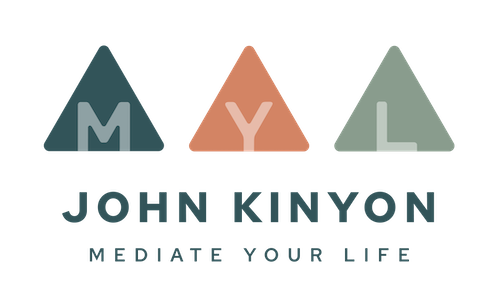Our Way Out of Hell

Have you ever prioritized your own needs over someone else’s? Have you noticed there was a cost to doing so? I have been pondering over this as I witness events in Israel-Palestine. I desire to get to the core of what is happening and extract the needed lessons for myself and civilization. Join me in exploring the narratives, delving into complexities, and pondering: When was the last time I met my needs at the expense of someone else — and what was the cost?
As I continue to observe events in Israel-Palestine and read commentary, two questions persist: What is at the core of what is happening, and what lessons can we learn for human civilization and conflict resolution? The conclusion I consistently reach is rooted in a core principle of Nonviolent Communication (NVC): Create a quality of connection where everyone’s needs involved are equally valued and met. What does this mean and what does it look like? Let’s start by examining narratives on both the pro-Israel and pro-Palestine sides.
One commentator states, “Israel has been an oppressive colonizer of Palestine since 1947-48, imposing and enforcing severe apartheid-like conditions on Palestinians. Israel has never truly wanted peace. Its aim has been to expand its territory and control resources. Palestinian attacks are the natural and inevitable consequence of long-term domination, trauma, injustice, and human rights violations. And now Israel is committing horrific war crimes of genocide and ethic cleansing.”
The pro-Palestinian perspective seems to be saying that in the creation and continuation of the state of Israel, Palestinians’ needs and well-being have not been equally valued and met in profound ways.
In contrast, another commentator states, “Hamas is to blame for the Palestinian people’s suffering, not Israel. Hamas provoked Israel’s magnitude of response by its attack on October 7, and they use their own civilians as human shields. Israel is only doing what it must as a necessary self-defense against future existential threats. Israel just wants a safe, secure homeland and to live in peace, which it has offered numerous times, but Palestinians and neighboring Arab nations only want conflict, terrorism, and the eradication of Israel.”
The pro-Israel perspective essentially asserts that Palestinians, in resisting and rebelling against what they experience as injustice and oppression, are not showing equal care for the needs of Israeli/Jewish people, who have also endured trauma from the Holocaust and a long history of persecution.
On the surface, these two narratives tell different stories, yet underneath, I see a a similarity. Both portray the other side as the oppressor and their side as the oppressed and victimized. Both peoples carry tremendous trauma. But the war of narratives is over which side is the virtuous and good, which is the bad and evil, and which deserves to be punished for their wrongdoing?
Whichever story one holds, empathy for the other side diminishes, shaping one’s perception of reality, facts, and feelings about the unfolding events.
To resolve this conflict of narratives, I propose we ask the question: When did one side meet their needs at the expense of the other? I’m confident each side could identify a multitude of instances — all humans can. This is key, we ALL do this at times, intentionally or unintentionally. We go through life being both actors and receivers of hurt in prioritizing our needs and well-being over others’.
It is self-evident to me that every time we — individuals, groups, nations — meet our needs this way, we pay for it. Nonviolent Communication creator Marshall Rosenberg often said: If we could see the cost of meeting our own needs in ways that do not care for the needs of others, we would never do it. We would see how costly it is to our own well-being.
The devastating toll on the people of Palestine, Israel, and the whole world watching, stems from a history of actions that did not seek to equally care for the needs of the other side. The world is paying dearly for it now, especially those directly impacted by the violence.
But there is good news. Leaders like Nelson Mandela, Mahatma Gandhi, and Mother Teresa showed us the tremendous power of prioritizing mutual well-being for positive social change. As difficult as it is, there is a way out of the hell of spiraling violence and suffering that plagues us on this planet. We can resolve conflicts by committing ourselves to holding the needs of the other equal to our own, from the personal to the global to the ecological.
Let’s begin to integrate this into our own lives now, using our sphere of influence, what is in our control. I invite you to sit with this question: When was the last time you met your needs in a way that did not equally care for the needs of another, or yourself? What was the cost?
As we grow through this collectively, let us stay in connection. I invite you to join my donation based weekly community event. And if you would like to deepen your capacity and awareness to needs consciousness and conflict navigation, I invite you to join one of my Training Programs this year. Learn more about both at https://johnkinyon.com/events/.
